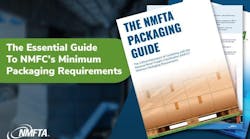Last month the U.S. Court of Appeals for the District of Columbia Circuit ruled that the Federal Motor Carrier Safety Administration (FMCSA) had failed to provide adequate minimum training requirements for entry-level drivers in the Final Rule issued in May 2004.
The Court ordered FMCSA to create a new rule that addresses the Federal Highway Administration's (FHWA) 1995 “Adequacy Report,” which concluded that training programs must contain “on-street hours.” The report had determined that only 9% of carriers in the heavy truck sector provided sufficient training, raising the urgency for FMCSA to address the issue.
The Advocates for Highway and Auto Safety, Owner-Operator Independent Drivers Assn. (OOIDA), and United Motor Coach Assn. all filed lawsuits against FMCSA, claiming that the training requirements as set forth in the final rule were not sufficient since they did not include any on-road, behind-the-wheel training.
“The contested final rule begins with the assurance that it responds to the Adequacy Report,” wrote Senior Circuit Judge Harry T. Edwards. “Rather than respond to the imperatives laid out in the Adequacy Report,” he continued, “the final rule completely ignores the study's emphasis on practical, on-the-road training.”
Judge Edwards also chided the U.S. Dept. of Transportation (DOT) for taking until 2004 to issue a final rule, almost ten years after the 1995 Adequacy Report had been released.
FHWA held a public meeting in 1996 that addressed the report and further regulatory action. “After the meeting…[FHWA's] activities…came to a halt,” Judge Edwards wrote. “Nothing in the record explains the hiatus, but for six years the agency initiated no further action. Indeed, it took litigation by concerned private parties to nudge the agency out of its slumber,” he added, referring to a November 2002 lawsuit that led to a DOT agreement to issue an entry-level training requirement final rule by May 2004.
OOIDA said the Court did not give FMCSA a deadline for rewriting the rule, adding that it appears the current rule will remain in effect until a new one is issued.


